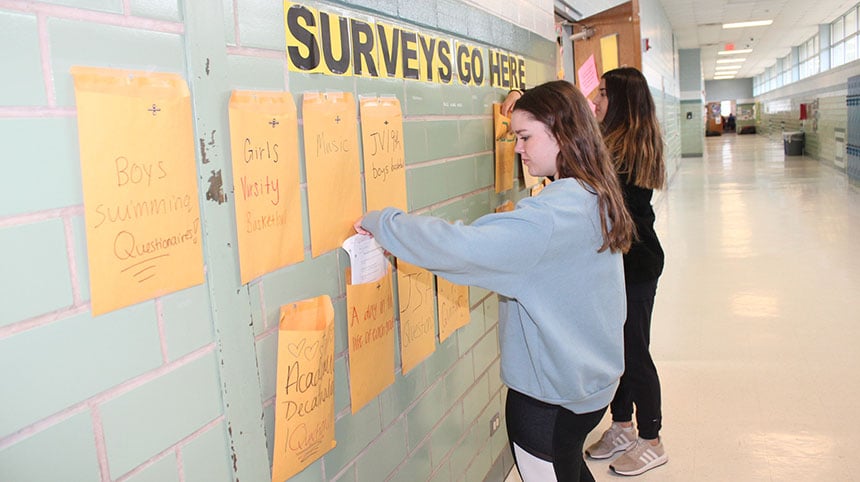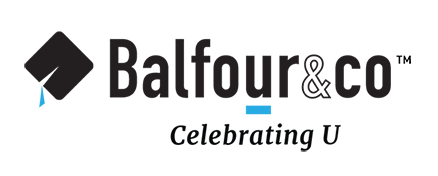
In 22 years, Alamo Heights adviser Kristin Cade has never had a late night or Saturday work day.
From time to time we feature guest columns from Balfour advisers. In this guest post from Alamo Heights High School, adviser Kristin Cade shares her tried-and-true strategies for keeping the staff motivated and organized. This post originally ran in the Spring 2019 issue of Balfour’s magazine Elements.
I am a diehard fan of the TV show “Friends,” so much so that I watch an episode while walking on my treadmill at 4 a.m. on school days. So whenever I think of yearbook deadlines, I hear Chandler’s voice saying, "Deadlines...could they BE any closer?"
The truth is deadlines are everywhere when you’re a yearbook adviser; you can either pull your hair out or learn to deal with them. I have been advising publications for 22 of my 26 years of teaching. I absolutely love being an adviser and I pride myself on being organized and meeting deadlines. Am I perfect? Of course not. Does everything always run perfectly in my kingdom? Of course not. But these are strategies I've learned along the way.
Start early
We are a fall delivery book so we finish our book by the end of school in June and we start on the next year's book the same day. On the last day of school, a teacher workday, I hold a yearbook camp for my editors. They must design the cover, endsheets and title page in this session. During the summer, my editors look for module ideas in magazines and send me pictures.
Finish the ladder before school starts
I like to have the ladder completed before the first day of school. The first two days of classes, staff members select their pages. Then I review their choices, making sure staff members don't have more than one spread per deadline. There are exceptions when the spreads are manageable pairings. Everyone on staff receives a printout of the ladder and deadlines for the year. I also keep color-coded deadlines on the wall of my classroom.
Use binders to track copy and proof corrections
I keep an editing binder divided into sections. When they complete captions or articles, staff members place their work behind the “editors” tab. After the editors proof the copy, they place the work behind the “return” tab. Staff members make corrections and then put the pages back in the binder behind the “adviser” tab so that I can edit and return the work to the writer. When students enter my class, it is their responsibility to check the binder and retrieve their copy to revise. Additionally, I keep a spreadsheet in the binder for each deadline. The spreadsheets have columns to be checked off as staffers complete each step of building a spread.
I have another binder for proofs. When we submit a deadline, I print the pages to put in the binder. After I receive proofs, and the editors and I make revisions, I note the corrections on the pages in the binder. On the second set of proofs, we check to make sure the corrections were made. This also helps track how many proofs we need to see again.

The Alamo Heights staff make it easy for students to answer questions by having a survey drop location outside her room.
Create a system to collect student questionnaires
After the students send out questionnaires for their pages, they put a big envelope on the wall outside my room with the name of their page. Students who fill out questionnaires can drop them off in the envelopes any time of day. It's my students’ responsibility to check for new responses every day until their article is complete.
Put pages on display
When we are working on a deadline, I print out all the pages of that deadline and note what needs to be done for the spread to be completed. I tape the pages on the white board and update the board as pages progress. When spreads are finished, I lead a celebration, announcing the name of the person responsible for the page and ripping the page off the white board as everyone cheers. I also keep a big printout on the wall of how many pages are remaining. After pages are completed, I update that with the same pomp and circumstance.
Make the most of your time
In my 22 years of advising, I've never had a late night or Saturday workday with students at school. This isn’t to say that I don’t do things outside of classroom hours; many weekends I spend time reviewing pages or proofs. However, by constantly motivating my staff and making them see how important it is to use their time wisely, we’ve never needed sessions outside of school.
Advisers work hard and are under-appreciated. Staying organized keeps me sane and motivated and, hopefully, creates a love of all things yearbook for my students. As Chandler would put it, "Could yearbook BE any more rewarding?"

